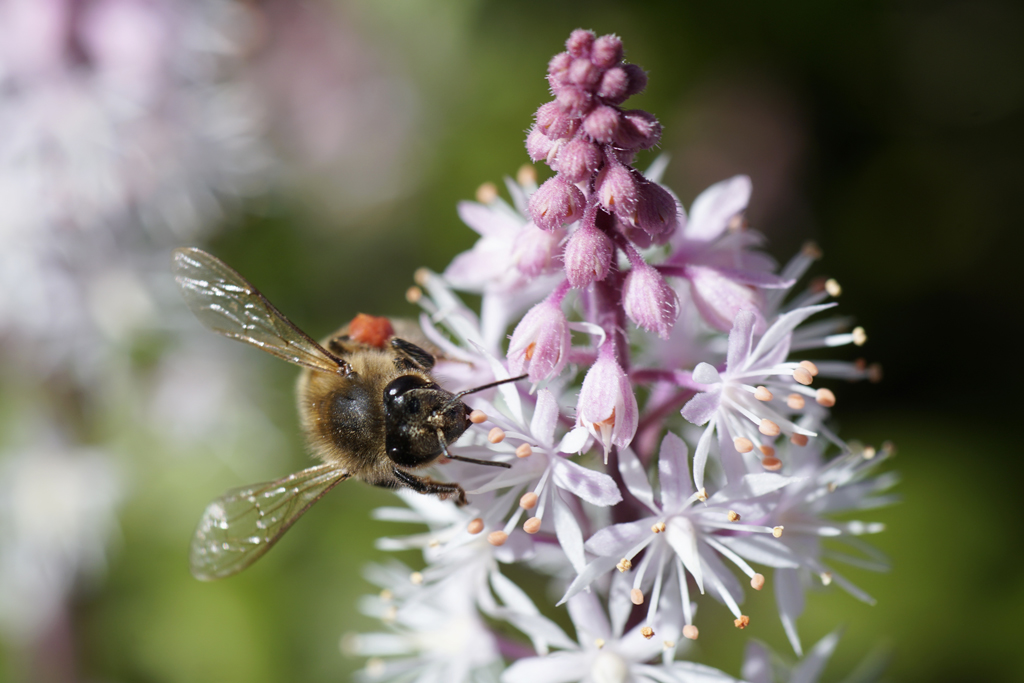
Getting started in Beekeeping
Where to start and what’s involved
If you would like to keep bees on your property there are a few things you need to know.
- It can be expensive, but you can acquire equipment at different beekeeping phases
- It involves a lot of equipment, depending on the type of bee hive you start with.
- Be prepared to work your hive(s) in a timely manner i.e. in spring they need regular attention but little in winter
- You need to learn the process in steps
- You will need at least 2 people to do this successfully
- You will need to read books to learn about the bees in your area, not everything you read on the internet is accurate
- Decide what kind of hive you want to keep and how many. Plan on a minimum of 2 colonies- in case of problems you have spare genetic material.
- Decide if you doing this for the bees or yourself to sell honey?
- You MUST by Law be a Registered beekeeper in Qld if you own 1 or more honey bee hives. DAF provides free registration for amateur beekeepers.
- You MUST check local Council ordinances on keeping bees in a suburban /backyard situation. Some do not permit any beehives, do this early to save disappointment if neighbours complain.
- Ask experienced beekeepers where to position and orientate your bee hives on your property, this is most important for winter especially.
When I decided I wanted a bee hive, the first thing I did was read a few books by local authors and asked lots of questions. I was informed my property needed a variety of bee-attracting trees, shrubs, and flowers. I visited our local Landcare Centre, (this is a native nursery in our area) and bought about 30 tube stock of the suggested plants. These steps are not essential if neighbours have bee friendly plants. The bees will seek out flowers from other properties in the area up to a 4 to 5km radius.
Once these were planted and established, about 18 months later, I went to the local Beekeepers’ group in our area to learn more. We got our first hive about 2 years after I began looking into it, and once I had acquired the necessary equipment.
You need to buy all your new equipment (or irradiated second hand equipment) and set it up ready to receive the nucleus hive. The nucleus colony comes either from a hive that has been removed from an unsuitable location, such as a background tree, inside a wall, or other man-made structure the bees have decided to build a hive in, or when an existing healthy hive is split due to increasing numbers. (Be aware that colonies acquired in this manner MAY be more prone to swarming and stinging due to unknown queen age and breeding characteristics).
I bought mine from the local Bee Group, these range in price due to demand in your area. I paid $100 about 3 years ago. This is a preferred way to acquire bee colonies as the local beekeeper will know the temperament of the bees being supplied. Also younger queens ensure a more productive hive.

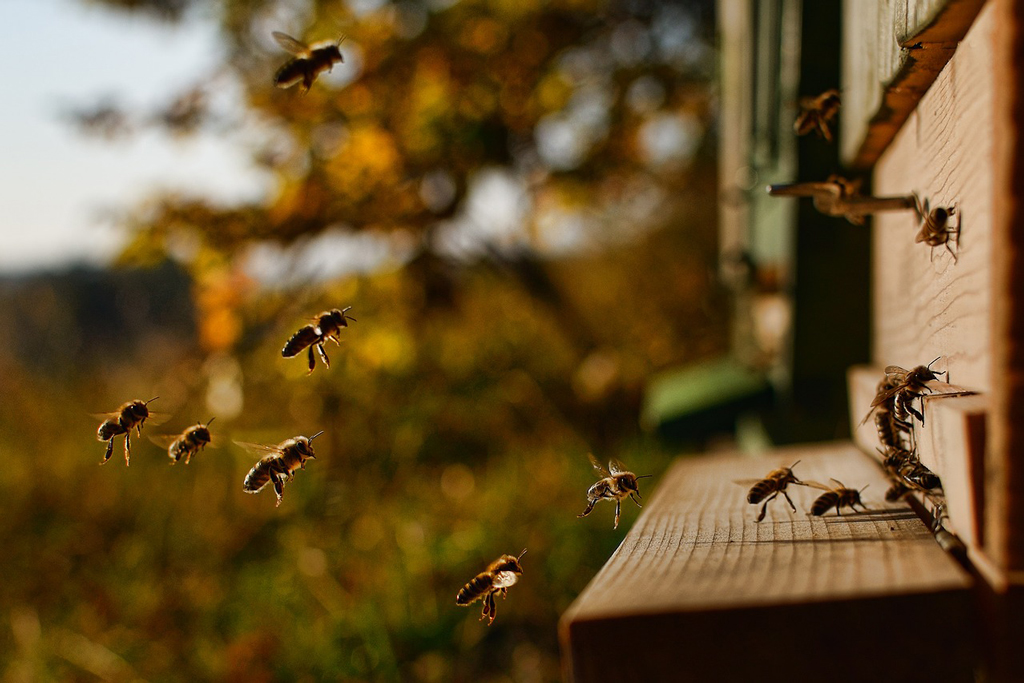
The equipment you will need consists of:
- Bee Hive Boxes (see image)
- frames for brood box and supers
- Smoker and fuel
- Protective Clothing
- Beekeeping suit or hat and veil
- Gloves
- Hive tool
- Uncapping knife
- Bee brush
- Burr comb
- Queen Catcher and marking pen
- 2 or 4 frame extractor
- Plastic bucket with gate (tap)
- Honey strainer
- Honey scrapper
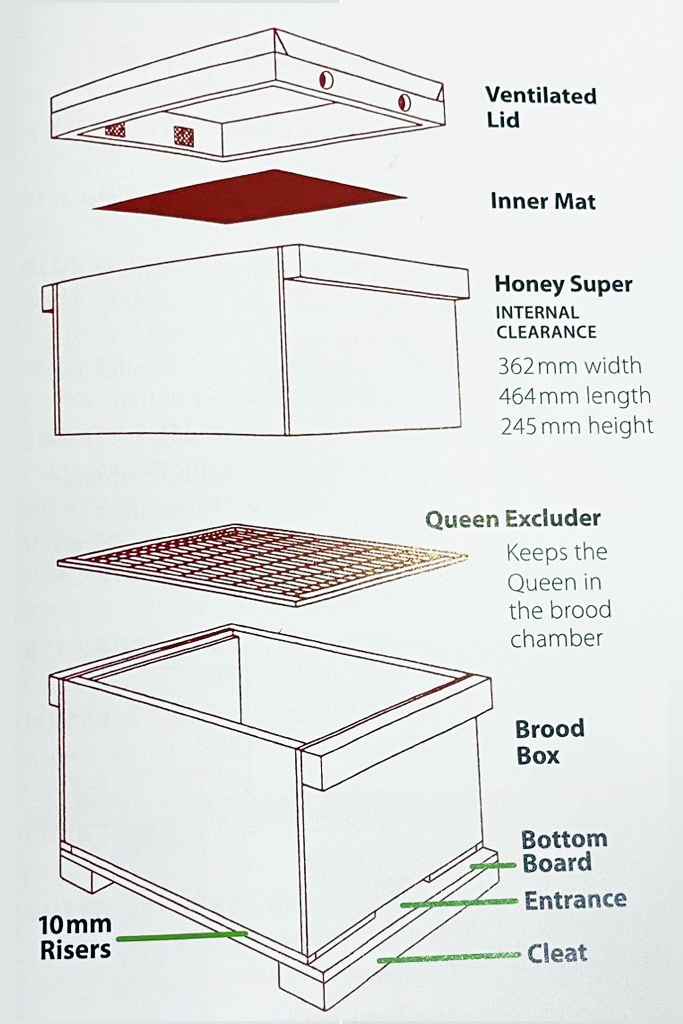
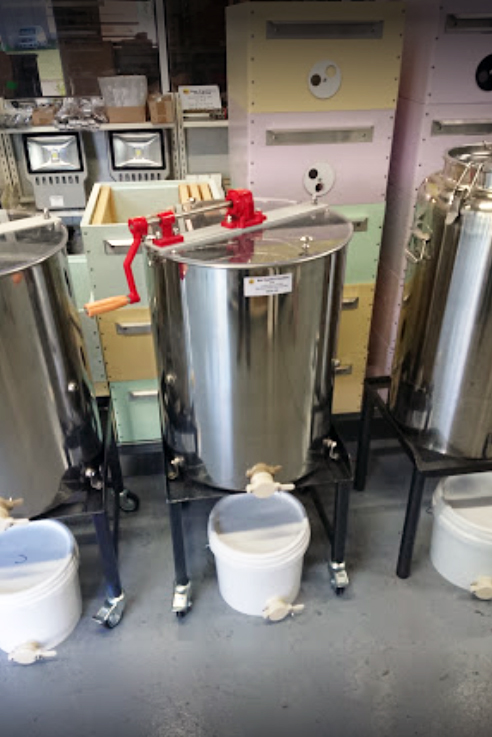
WARNING: Start off with brand new bee contact equipment e.g. beeboxes, lids, bottom boards, queen excluders, and frames. Starting off with brand new equipment minimises risk of serious bee diseases ( read up on AFB ) OR….Alternatively buy second hand good condition equipment BUT YOU MUST GET ALL second hand equipment irradiated by Steritech facility ( Narangba Brisbane)

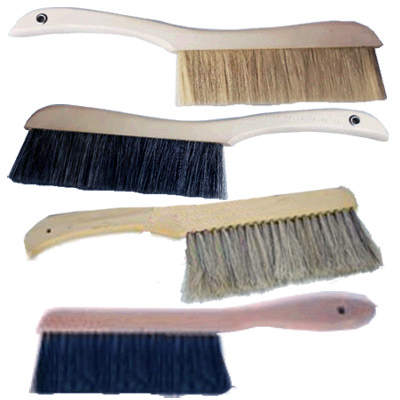

Once you have your equipment set up and you have your bees, next comes the monitoring part. I check my bees more during spring and summer, approximately every 2 weeks. I am looking for small hive beetle (SHB) or any signs of disease or distress in the hive.
If all is well, I then check the honey super for how much excess honey is in the frames and remove a few full frames, if required, and replace them with empty ones.
I put the hive to bed in late Autumn and only check on it once a month during winter unless I am concerned about something. This year was very wet and this led to an increase in small hive beetle, so I check it every 2 weeks instead of the usual 4 weeks.
Chemical and natural traps and lures are available to control SHB. The quantity of hive beetles in this photo is far too high for example.

Once you have extra honey ready to be extracted, you will need an easy-to-clean area, as this gets very messy, and extracting equipment. You will need an experienced beekeeper to assist you with checking the hive and extracting the honey for the first time and probably even a second or third time. I have a mentor who helps me with this, which is so helpful as I learn something new every time.
Joining your local beekeeping group is usually the best way to learn and get help while you are new to beekeeping.
Learn More about our Off Grid Expo HERE | Buy your tickets for EXPO Here
Event Organisers:
Dee White: dee@offgridexpo.com.au – 0434 630 510
Di Woodstock: di@offgridexpo.com.au – 0419 224 628
Event Organisers
Dee White
dee@offgridexpo.com.au
0434 630 510
Di Woodstock
di@offgridexpo.com.au
0419 224 628
